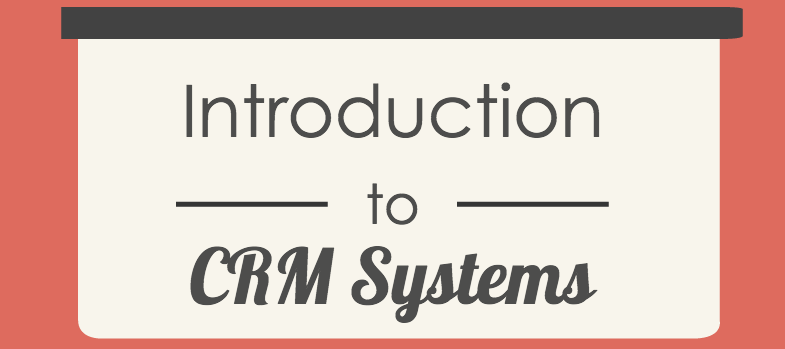
Customer Relationship Management systems, otherwise known as CRM systems, are specially designed pieces of software that work with company processed to enable businesses to manage their relationships with customers along with customer related information, by creating more reliable and profitable interactions with customers. These systems are incredibly beneficial for a wide range of companies and are being utilised by small businesses, along with larger corporations to create more positive and long-lasting relationships.
If you are new to CRM you might be wondering exactly what it is, what it does and how it can be of benefit to your company, this introduction is designed to answer all of these questions and more.
What is a CRM system?
Customer Relationship Management (CRM) helps businesses to understand:
– Who their customer base is.
– How customers prefer to interact with companies they use.
– How profitable the business currently is.
– How profitable the business could potentially be if optimised.
The CRM system essentially gathers information about customers and analyses and interprets this data. This information can then be used when making important business decisions in how business should be conducted, such as what sales and marketing mediums should be invested in or discarded and what new products and/or services should be developed going forward, all of this is with the aim of attracting a wider audience and therefore making your business more profitable.
Where can I get a CRM system?
There are plenty of CRM software providers and a number of CRM systems available on the market, for example this one . The more detailed and comprehensive pieces of software are often ones you need to pay for, though there are also some free on-line CRM systems available too. There are two types of free CRM software, the first is a free but limited software with limits on free users, contacts, storage and extra features. The second is a an open source software that offers almost unlimited and fully functional CRM to users which is customisable and offers installation and/or support at an additional price. The type of CRM system you require greatly depends on the size of your business and the capabilities you require from the software. For example, small business might use a free CRM system, though as they upscale to become a medium business or enterprise, they will later move to a paid service that is better suitable to their business needs.
Top paid CRM systems: (in no particular order)
Microsoft Dynamics CRM 2011
Oracle CRM
SAP CRM
Salesforce.com
SugarCRM
Top free CRM systems: (in no particular order)
SuiteCRM (open source)
Capsule (free, limited)
Insightly (free, limited)
Really Simple Systems (free, limited)
FreeCRM (free, limited)
Benefits of CRM systems:
There are a wide range of benefits, some of these include:
Better decision making: real time reporting throughout all business teams enables well-informed decisions by management.
Time is managed more effectively: CRM systems will send alerts of new activity and reminders to follow-up on activities increasing the efficiency of staff.
Sales and Marketing activity produces higher quality leads: CRM highlights what sales and marketing strategies should be applied (or discarded) while continually improving contact segmentation and producing targeted campaigns.
Sales and production forecasts efficiency increased: through more reliable pipeline reports, which helps to manage cash flow.
Performance problem areas are highlighted: allowing companies to act quickly and take action.
Reduction in administrative tasks: CRM systems reduce admin work and eliminate any repetition to ensure staff can work more efficiently.
CRM systems connect to other departments: such as accounts, to combine processes and ensure continuity throughout the company and remove any task double-handling.
Allows staff to work remotely: a CRM system allows for reliable and secure remote access to all customer and activity history, via a mobile phone or tablet.
